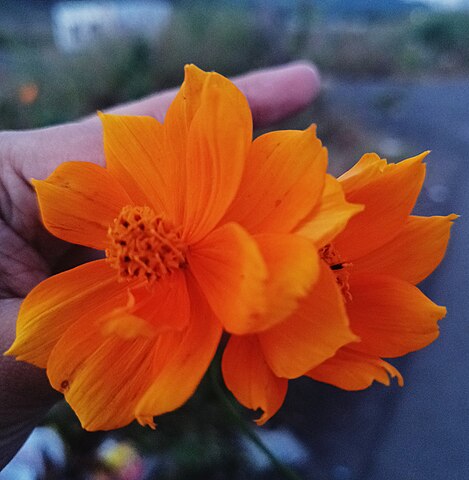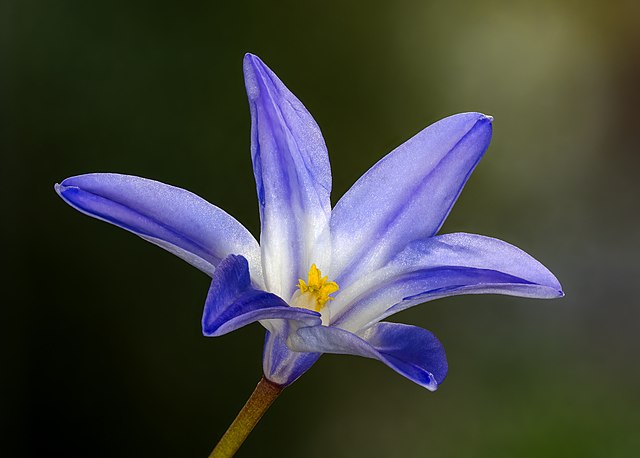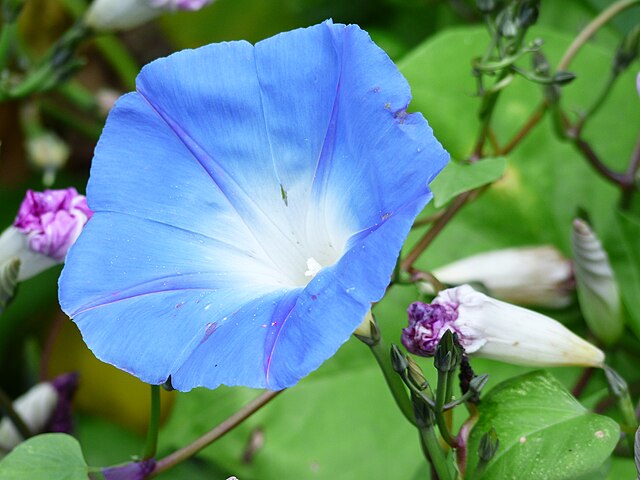
The Thammasat University Library has acquired a new book that should be useful for students interested in botany, flowers, literature, folklore, mythology, religion, sociology, and related fields.
The Complete Language of Flowers: A Definitive and Illustrated History is by S. Theresa Dietz. The TU Library collection has many other books about different aspects of flowers.
The language of flowers, also known as floriography, refers to hidden or secret communications through the use or arrangement of flowers. For thousands of years, flowers have been said to have meanings in Asia, Africa, and Europe, and Africa. William Shakespeare gave meanings to flowers, especially in his play Hamlet. In J. K. Rowling’s 1997 novel Harry Potter and the Philosopher’s Stone, Professor Severus Snape uses the language of flowers to express sorrow at the death of Lily Potter, his childhood friend and Harry Potter’s mother.
Interest in floriography became especially noteworthy in Victorian England and in the United States in the 1800s. Gifts of flowers, plants, and floral arrangements were used to send a coded message to the recipient. In principle, some feelings were not considered appropriate to be discussed aloud in Victorian society.
As TU students of botany know, flowers are the reproductive structures found in flowering plants. In addition, flowers have long been admired and used by humans to beautify the environment and also as a source of food.

Here are some thoughts about flowers by authors, many of whom are represented in the TU Library collection:
The bud may have a bitter taste,
But sweet will be the flower.
- William Cowper, Olney hymns, ‘Light Shining Out of Darkness’, June 1778.
Not a flower
But shows some touch, in freckle, streak or stain,
Of his unrivall’d pencil.
- William Cowper, The Task (1785), Book VI, line 241.
As for mortal man, his days are like those of green grass;
Like a blossom of the field is the way he blossoms forth.
For a mere wind has to pass over it, and it is no more;
And its place will acknowledge it no further.
But the loving-kindness of Jehovah is from time indefinite even to time indefinite
Toward those fearing him, and his righteousness to the sons of sons,
to those who keep his covenant and remember to do his commandments.
- The Bible, David, Psalms 103:15-18
But the flower leaned aside
And thought of naught to say,
And morning found the breeze
A hundred miles away.
- Robert Frost, Wind and Window Flower, A Boy’s Will (1915)
The flower is the poetry of reproduction. It is an example of the eternal seductiveness of life.
- Jean Giraudoux, The Enchanted (1933)
Full many a flower is born to blush unseen
And waste its sweetness on the desert air.
- Thomas Gray, Elegy Written in a Country Churchyard (1751)
Gather ye Rose-buds while ye may,
Old Time is still a-flying;
And this same flower that smiles to-day,
To-morrow will be dying.
- Robert Herrick, To the Virgins, to Make Much of Time (1648)
Go, happy rose, and, interwove
With other flowers, bind my love.
Tell her, too, she must not be
Longer flowing, longer free,
That so oft has fetter’d me.
- Robert Herrick, To the Rose (1648)
Yellow japanned buttercups and star-disked dandelions, just as we see them lying in the grass, like sparks that have leaped from the kindling sun of summer.
- Oliver Wendell Holmes, Sr., The Professor at the Breakfast Table (1859), X.
Above his head
Four lily stalks did their white honours wed
To make a coronal; and round him grew
All tendrils green, of every bloom and hue,
Together intertwined and trammell’d fresh;
The vine of glossy sprout; the ivy mesh,
Shading its Ethiop berries.
- John Keats, Endymion (1818), Book IV, line 413
Young playmates of the rose and daffodil,
Be careful ere ye enter in, to fill
Your baskets high
With fennel green, and balm, and golden pines
Savory latter-mint, and columbines.
- John Keats, Endymion (1818), Book IV, line 575.
I sometimes think that never blows so red
The Rose as where some buried Caesar bled;
That every Hyacinth the Garden wears
Dropt in her Lap from some once lovely Head.
- Omar Khayyam, Rubaiyat of Omar Khayyam (1120), Stanza 19. FitzGerald’s translation
One thing is certain and the rest is lies;
The Flower that once has blown for ever dies.
- Omar Khayyam, Rubaiyat of Omar Khayyam (1120), Stanza 63. FitzGerald’s translation.
Dear common flower, that grow’st beside the way,
Fringing the dusty road with harmless gold,
First pledge of blithesome May,
Which children pluck, and, full of pride uphold.
- James Russell Lowell, To the Dandelion, st. 1.
Anemones and seas of gold,
And new-blown lilies of the river,
And those sweet flow’rets that unfold
Their buds on Camadera’s quiver.
- Thomas Moore, Lalla Rookh (1817), Light of the Harem.
There is that in the glance of a flower which may at times control the greatest of creation’s braggart lords.
- John Muir, A Thousand-Mile Walk to the Gulf (1916).
Color is the ultimate in art. It is still and will always remain a mystery to us, we can only apprehend it intuitively in flowers.
- Philipp Otto Runge, in a letter (February 1802)

These flowers are like the pleasures of the world.
- William Shakespeare, Cymbeline (1611), Act IV, scene 2, line 296.
When daisies pied, and violets blue,
And lady-smocks all silver-white,
And cuckoo-buds of yellow hue
Do paint the meadows with delight.
- William Shakespeare, Love’s Labour’s Lost (c. 1595-6), Act V, scene 2, line 904.
I know a bank, where the wild thyme blows
Where ox-lips, and the nodding violet grows;
Quite over-canopied with luscious woodbine,
With sweet musk-roses, and with eglantine.
- William Shakespeare, A Midsummer Night’s Dream (c. 1595-96), Act II, scene 1, line 251
To strew thy green with flowers; the yellows, blues,
The purple violets, and marigolds.
- William Shakespeare, Pericles, Prince of Tyre (c. 1607-08), Act IV, scene 1, line 15.
The fairest flowers o’ the season
Are our carnations and streak’d gillyvors.
- William Shakespeare, The Winter’s Tale (c. 1610-11), Act IV, scene 4, line 81.
So passeth, in the passing of a day,
Of mortal life, the leaf, the bud, the flower;
No more doth flourish after first decay,
That erst was sought to deck both bed and bower
Of many a lady and many a paramour.
Gather therefore the rose whilst yet in prime,
For soon comes age that will her pride deflower.
Gather the rose of love whilst yet in time,
Whilst loving thou mayst loved be with equal crime.
- Edmund Spenser, The Faerie Queene (1589-96), Book II, Canto XII, Stanza 75
The slender acacia would not shake
One long milk-bloom on the tree;
The white lake-blossom fell into the lake
As the pimpernel dozed on the lea;
But the rose was awake all night for your sake,
Knowing your promise to me;
The lilies and roses were all awake,
They sighed for the dawn and thee.
- Alfred Tennyson, Maud; A Monodrama (1855), Part XXII, Stanza 8.
The daisy, primrose, violet darkly blue;
And polyanthus of unnumbered dyes.
- James Thomson, The Seasons, Spring (1728), line 529

(All images courtesy of Wikimedia Commons)
